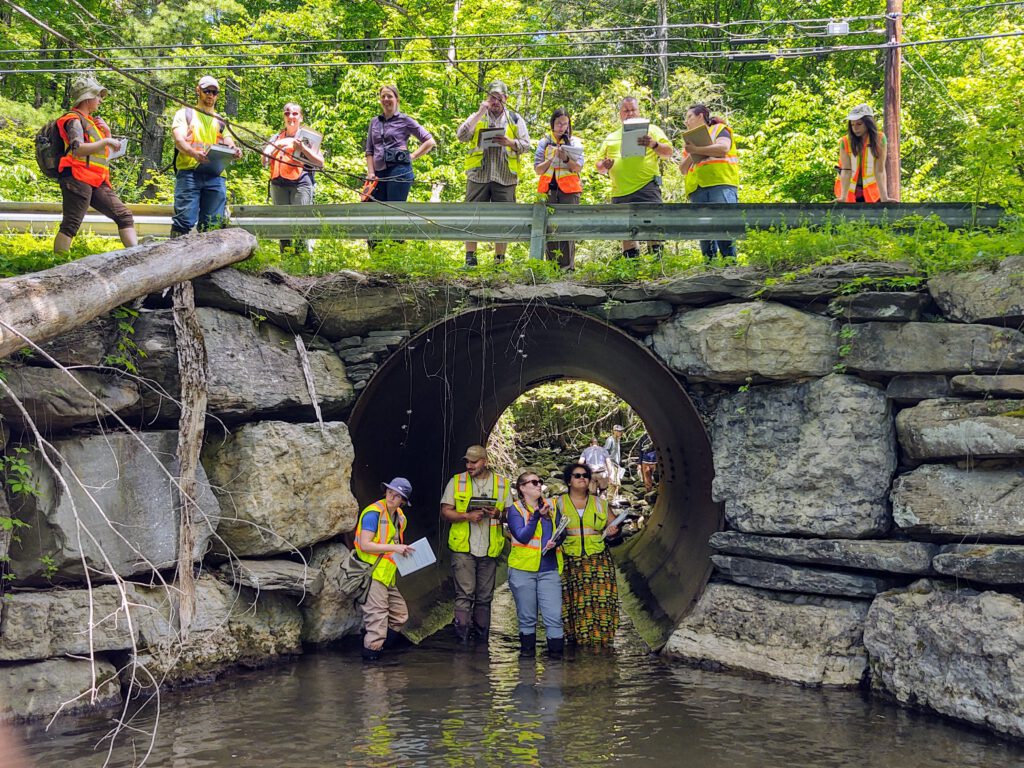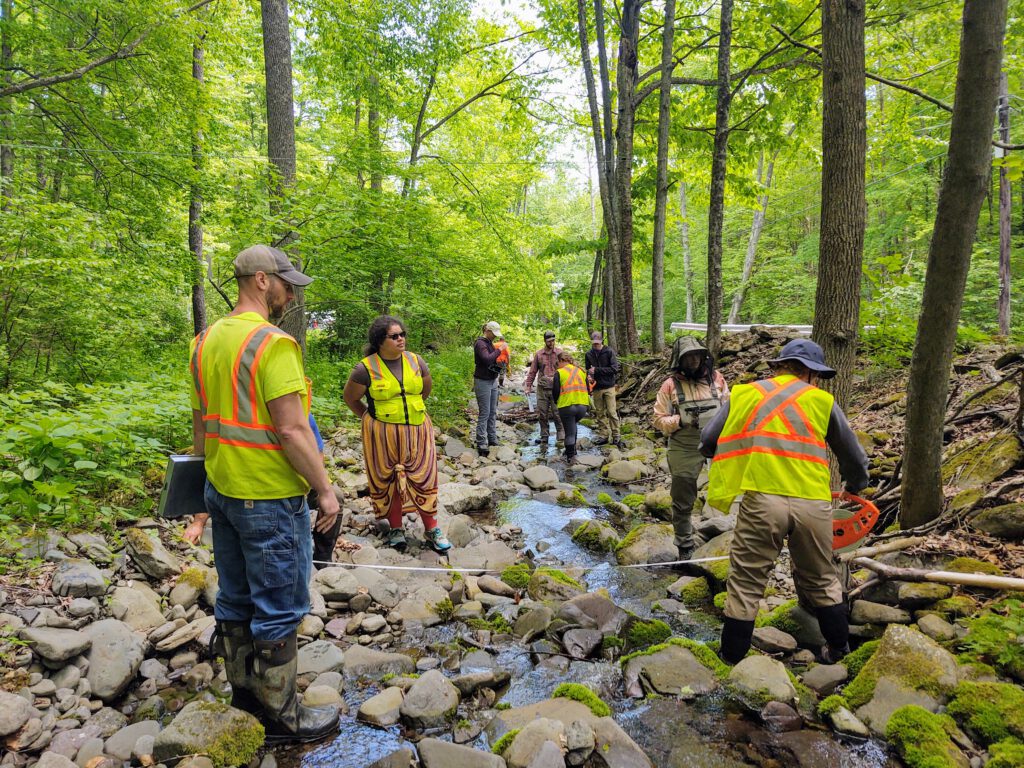June 13, 2022: Here at AWSMP, the stream becomes a classroom where information flows freely.
On May 23 – 26, CCE Educator Tim Koch led a multi-day training on the Multi-Objective Stream Crossing Assessment Protocol (MOSCAP), a unique culvert and bridge assessment methodology developed and piloted in the Ashokan Reservoir watershed. Fourteen participants from county, regional, and state agencies learned field methods that integrate geomorphic compatibility, aquatic organism passage, and structural condition into culvert and bridge assessments.

To apply these methods, the class waded into streams at road-crossing locations, working their way through an entire MOSCAP field assessment at several sites. The assessments included measuring structure dimensions and making observations about stream channel and floodplain conditions. Data collected in the field are used to prioritize the road-stream crossings that would have the greatest positive impact if replaced. This includes improvements to stream channel stability, structural resilience, and improved upstream passage for aquatic and riparian organisms.

The skills learned in this training will help area professionals assess and maintain road crossings over streams while protecting water quality, habitat, and building resilience to floods.
Another MOSCAP field methods training is being planned for later this year, and MOSCAP training documents are currently available upon request. Contact Tim Koch by email at tk545@cornell.edu
